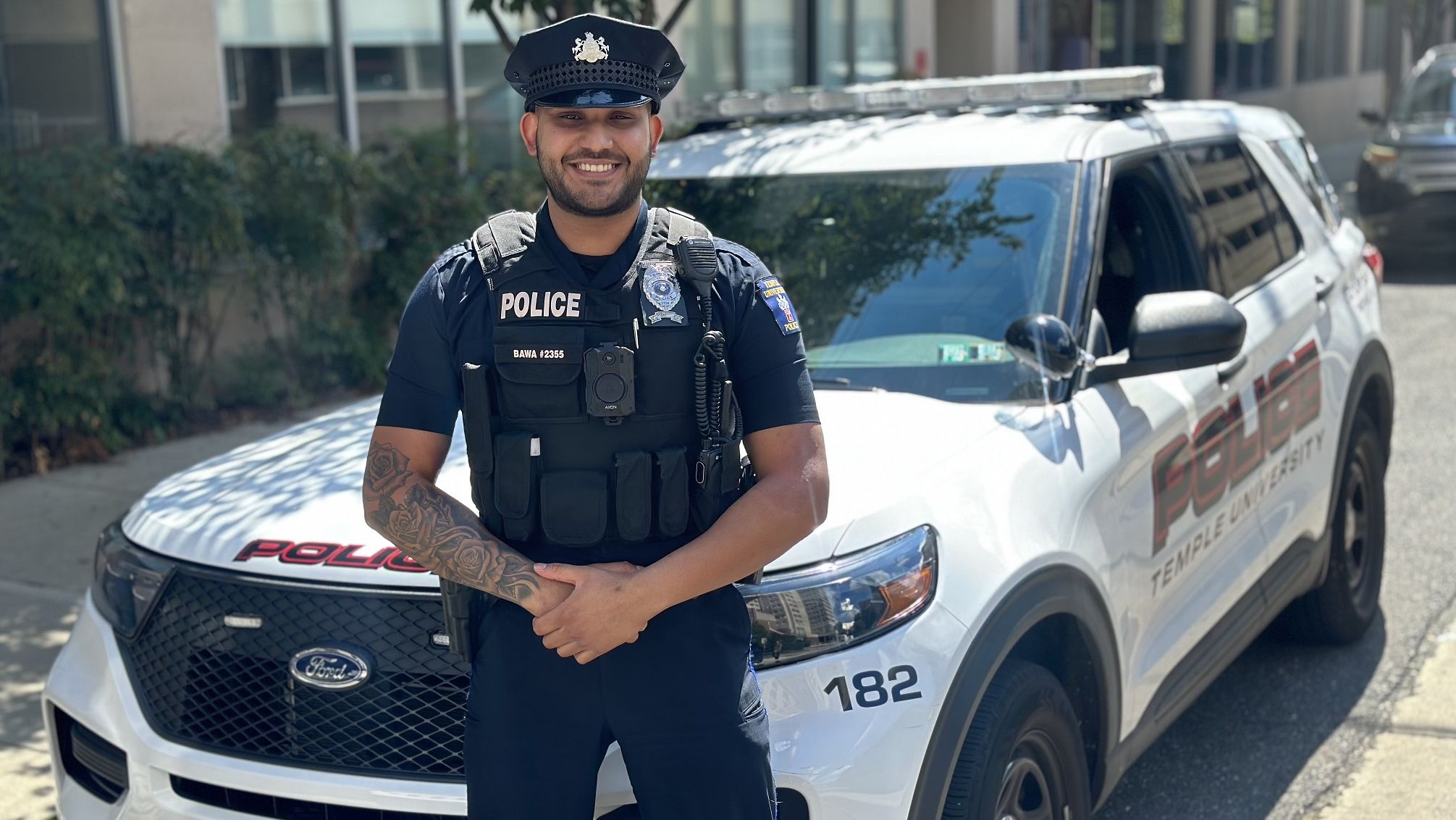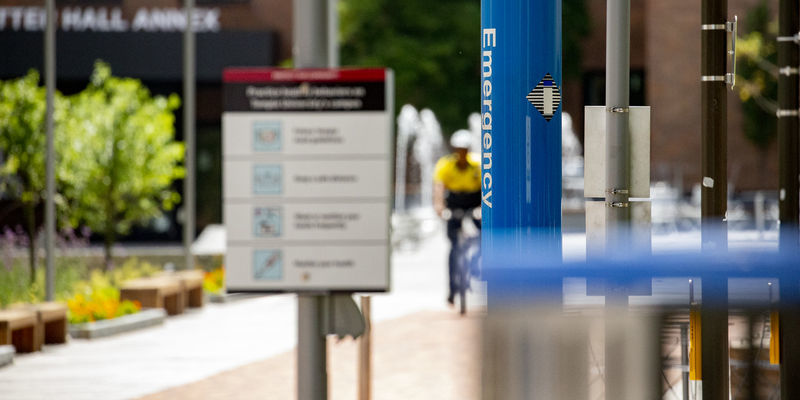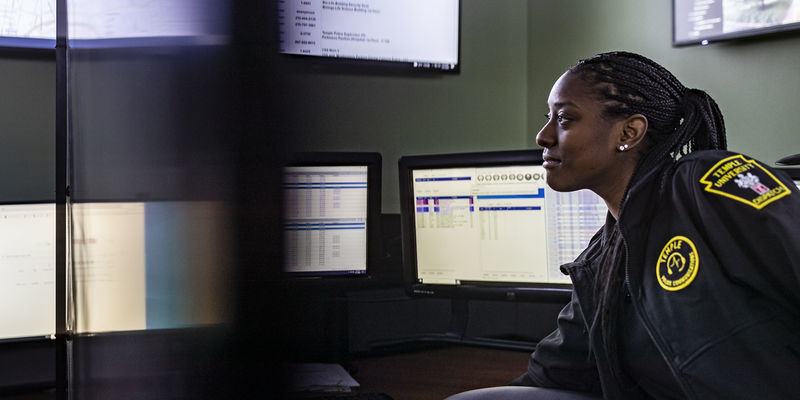The Department of Public Safety steps up foot patrols with new initiative
Temple’s Department of Public Safety’s new initiative called Park and Walks encourages officers to step out of their vehicles and have more interactions with the Temple community.

Temple University’s Department of Public Safety (DPS) is launching a new initiative called Park and Walks, which increases foot patrols conducted by Temple police officers within the university’s patrol zone, according to Vice President for Public Safety Jennifer Griffin.
“Park and Walks involve police officers parking their cruisers and walking within their assigned patrol areas,” said Griffin. “This allows officers to learn more about the students, staff, faculty and business owners that they’re protecting, and increase their engagement opportunities.”
Previously, Park and Walks were not required by DPS, however, Griffin said that some officers were voluntarily doing them to connect with the community. Now, officers who are assigned patrol vehicles must conduct Park and Walks for at least 90 minutes of their 12-hour shift.
Officers are required to notify the dispatch center that they are on foot patrol and where they are located. The new policy follows a recommendation by the public safety audit that was released in April. The audit examined Temple University’s policies, technologies and training procedures related to DPS.
According to the audit: “Given the relatively compact size of Temple’s campus and patrol boundaries, campus community safety may be especially well-served by the high visibility and enhanced effectiveness of nonmotorized patrol.”
“This recommendation is one of dozens that we have taken action on. It’s significant because foot patrols are backed by science,” Griffin said.
The research behind foot patrols comes right from Temple’s own Jerry Ratcliffe, professor of criminal justice. Ratcliffe is also a scientific advisor to the International Association of Chiefs of Police. “We are fortunate to have so many world-class scholars here at Temple and we are leveraging their research to inform our strategies,” Griffin said.
The audit recommends “TU, as well as TUPD, should develop stronger partnerships with existing university resources that address community safety and crime to promote and enhance violence reduction and safety initiatives.”
“We know from the research of Professor Ratcliffe that foot patrols work,” Griffin said. “Foot patrols increase safety by improving personal relationships between community members and law enforcement, which improves our ability to fight crime.”
Ratcliffe conducted a study involving more than 200 officers from the Philadelphia Police Department during the summer of 2009. The study analyzed data within high crime areas, called hotspots. As part of the study, foot patrols were used in certain hotspots while other hotspots received regular patrolling without foot patrols. The study found that crime dropped when police officers walked the streets and developed relationships with the community.
According to the study, “...the overall reduction in violence indicates the foot patrols prevented 50 violent crimes during the summer.”
Ratcliffe’s research, called the Philadelphia Foot Patrol Experiment, was published in 2010.
“To be able to get out and walk around, students and faculty see you walking and it makes you more approachable,” said Temple Police Officer Arashdeep Bawa. “We’ll stop by and do business checks to see how they’re doing. We’ll learn employees’ names, build trust. And students—they’ll see us and they’ll talk with us. It’s all about community engagement.”
Bawa also said the Park and Walks go beyond reaching out to Temple students, staff and businesses. He also tries to connect with the North Philadelphia community.
“Some of the officers will sometimes meet with the youth to play basketball. That’s what I personally enjoy doing,” Bawa said. “We’re bridging the gap between the community and the university.”
Students are noticing the additional foot patrols.
“Especially when I walk from my home off campus and to class, I definitely do see more police officers,” said Emma Shainline, a senior media studies and production major.
Griffin added that the Temple community should become more comfortable approaching officers, whether they need to report suspicious activity or just want to chat.


